The annual Munich Security Conference bills itself as aiming to prevent or resolve the world's conflicts, but the gloomy consensus of this year's meeting was that there is no quick end in sight to the bloodiest conflict of them all, Syria. Since the national leaders, ministers, diplomats and generals last came together for the event one year ago, Syria's death toll has shot up more than ten-fold to more than 60,000.
The bloody war raging between President Bashar al-Assad's regime and rebel forces has laid waste to vast areas of the country, created a flood of refugees and threatens to destabilise the region.
The Middle East, Israeli Defence Minister Ehud Barak told the conference on Sunday, was now in its worst period of instability since the collapse of the Ottoman Empire 90 years ago. Human Rights Watch chief Kenneth Roth warned Syria could turn into "a combination of Iraq and Lebanon."
"Iraq in the sense of a complete collapse of the state structure as occurred after the US invasion there," he explained. "Lebanon at the height of the civil war in which a series of sectarian militia fought it out with massive loss of life." Qatar's Prime Minister Hamad bin Jassim warned the conflict waged by al-Assad's "killing machine" against his people could turn the Middle East into "a volcano of war and turmoil."
He pointed the finger of blame at the UN Security Council, where veto powers Russia and China have blocked Western hopes of punishing al-Assad with sanctions, an arms embargo or other measures. The UN-Arab League envoy for Syria Lakhdar Brahimi expressed little hope of progress anytime soon and sounded exasperated when he told the Security Council to "please do your job!"
Russian Foreign Minister Sergei Lavrov however reiterated Moscow's backing for al-Assad and cautioned against any intervention, "especially without a mandate from the UN Security Council." He met with Syrian opposition coalition leader Moaz al-Khatib, but otherwise stuck to Moscow's pro-Assad line. Asked about the risk of the regime using chemical weapons, Lavrov said "the greatest danger is the possibility that the chemical weapons will fall into rebel hands."
Roth of Human Rights Watch said Russia's President Vladimir Putin "has paid too little a price" for protecting al-Assad. "I would have liked to see Western countries daily condemning Putin for his callousness," said the head of the rights group, charging that the "Russian arms machine is feeding Assad's killing machine." "It seems the world is just sitting back and figuring, 'the Syrians will fight it out, at some point Assad will fall, we'll just let them do it themselves.' "
He said at the very least the West should provide massive humanitarian assistance to opposition-held areas, while "so far aid has mostly been delivered by Damascus." US Vice President Joe Biden said the "tyrant" al-Assad "must go" - but there were few concrete ideas on how this might happen, amid a widespread sense of gloom at the conference. US Senator John McCain said: "As I talk to officials in foreign governments and in my own government, I have not yet met anyone who actually believes that our current policy will succeed, absent further changes to the balance of power on the ground."
German Defence Minister Thomas de Maiziere said that on Syria "I have absolutely no illusions," telling journalists: "I think this will stay a bitter civil war for a long time, and our influence on how it will end is far more limited than we would like." Al-Khatib said: "Very honestly, I would like to say that the international community is not dealing in an ethical way with these massacres."
He reiterated his offer of talks with al-Assad's regime. But in case this doesn't work, he said the West should help by electronically jamming or destroying Syrian air force jets. McCain, an influential voice on US foreign policy, made the same case, suggesting cruise missiles could target Syrian military air bases, and that Nato's Patriot missiles in Turkey could take out Syrian planes over the northern battlefield city of Aleppo.
The US senator poured scorn on UN Secretary General Ban Ki-moon, who he said "feels compelled every morning to get up and tell the world that Nato will not be involved. The tragedy goes on." McCain warned that "every single day more jihadists pour into Syria. They're not going to go away the day after Bashar Assad leaves office." "What's left of the moderate Syrian opposition is in a race against time to survive the radicalisation of this conflict, and right now the world is failing them."
BR100
15,115
Increased By
28.1 (0.19%)
BR30
43,048
Increased By
175.6 (0.41%)
KSE100
149,493
Increased By
257.8 (0.17%)
KSE30
45,518
Increased By
11.6 (0.03%)













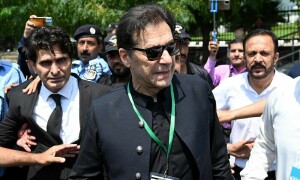
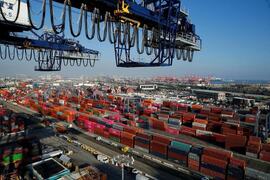
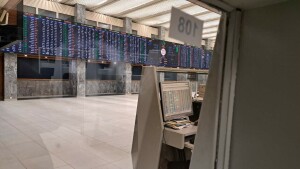
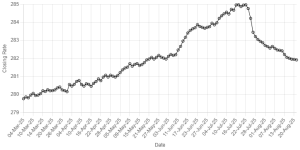
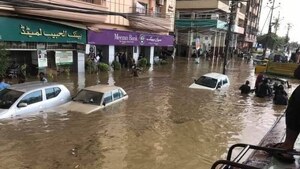

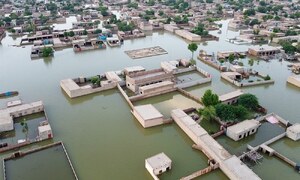
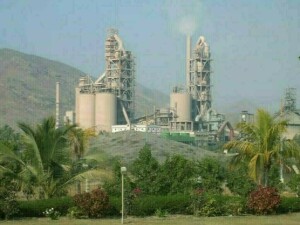


Comments
Comments are closed.